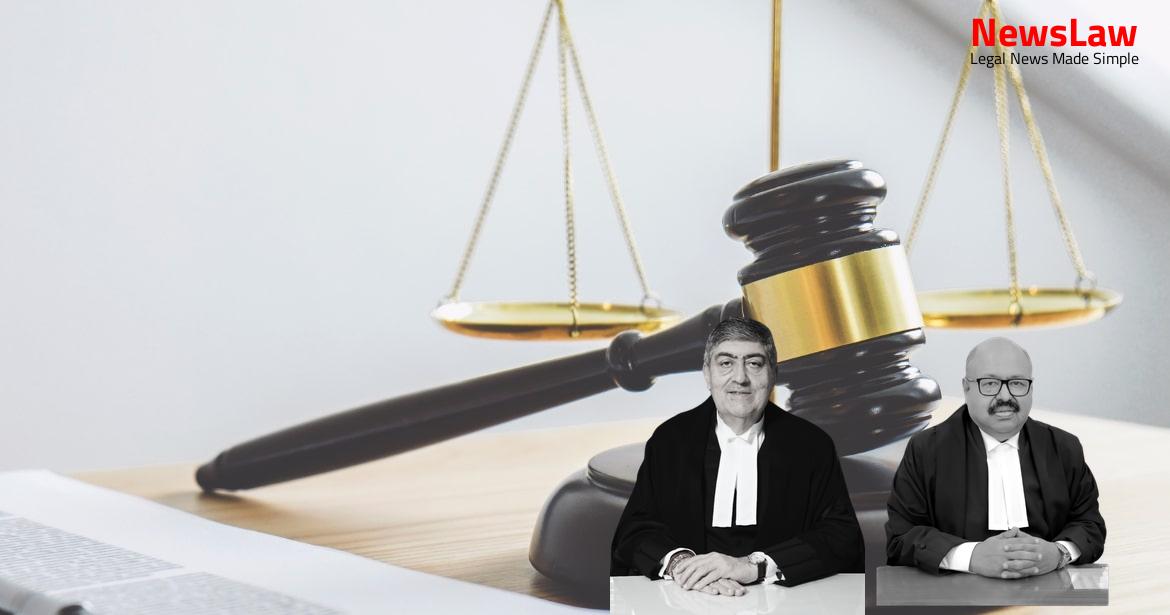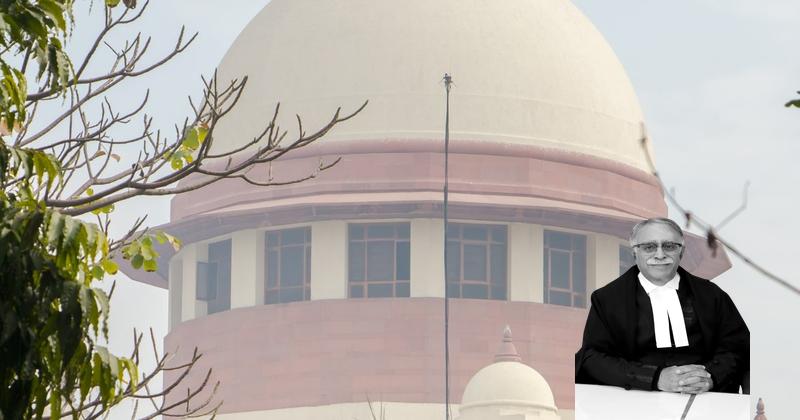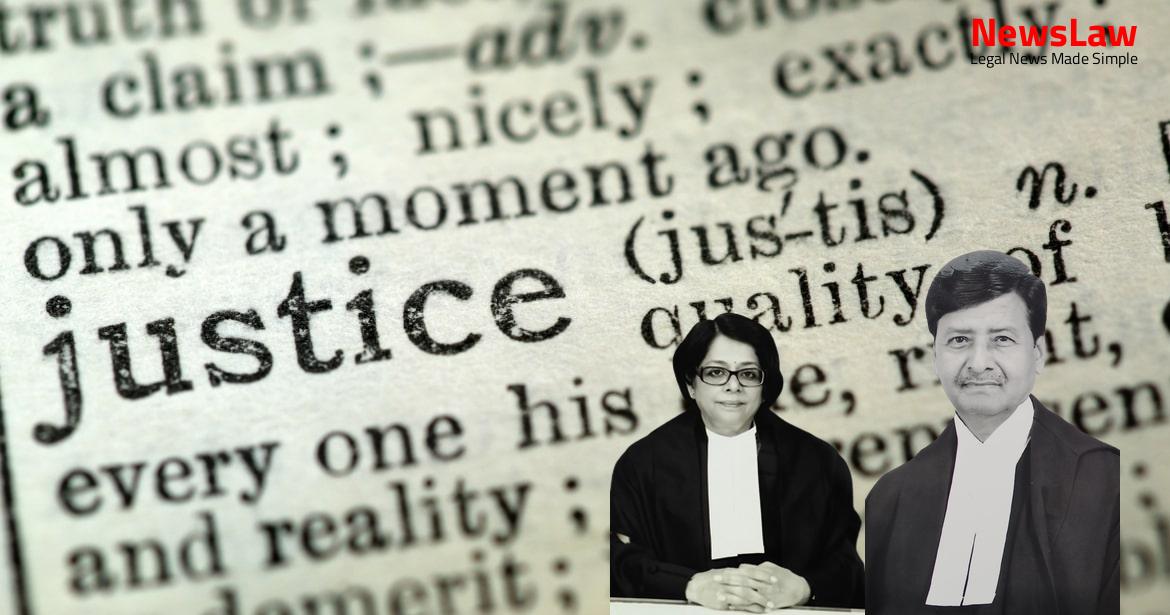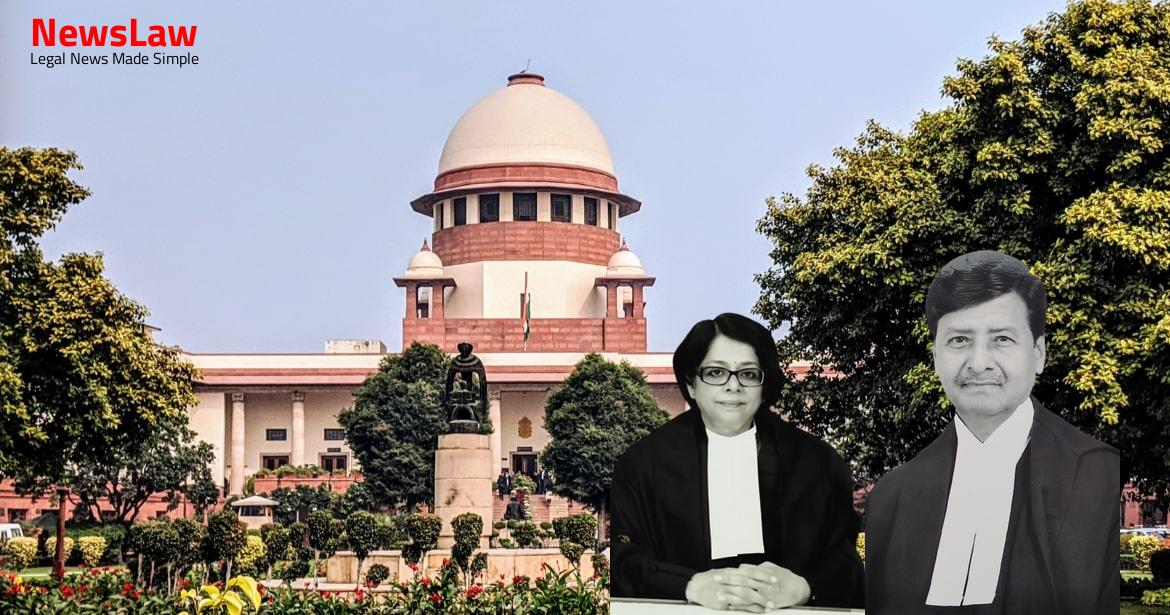Explore the nuanced legal analysis employed by the court in a recent case concerning the adherence to principles of natural justice. The examination of proceedings and the court’s stance on fairness in the legal system provides valuable insights into the case’s intricate details.
Facts
- The FMC’s order dated 23.7.2011 found Respondent Nos.1 and 2 at fault.
- Respondent No.2 repeatedly sought adjournments in the proceedings filed in the High Court by Respondent No.1, with the assistance of Respondent No.2.
- The FMC clarified its jurisdiction in the matter.
- Respondent No.2 was held responsible for breaching fiduciary duties to NMCE and committing various crimes for personal gain.
- In parallel proceedings in the High Court, an intra court appeal was filed by Respondent No.1 through Respondent No.2, resulting in LPA No.1039/2011 being filed.
- The SAT was set to hear the appeal on its merits.
- The appeal was amended to challenge the order dated 23.7.2011 by the FMC.
- The Division Bench of the Gujarat High Court allowed the appeal on 9.2.2012 as the FMC did not serve the show cause notice on Respondent No.1 and the NMCE, depriving them of presenting their case.
- Consequently, the FMC’s order dated 23.7.2011 was quashed by the High Court.
Also Read: Supreme Court Judgment on Single Till Mechanism for HRAB Calculation: A Comprehensive Analysis
Arguments
- Mr. C.U. Singh, supported ICEL’s plea arguing to pierce the corporate veil of the respondents.
- Denial of adjournment does not always violate natural justice principles as adjournment is not a birthright.
- Proceedings were shifted to the SAT but it did not mean a complete reopening as the appeal was to be heard ‘on merits.’
- SEBI had granted adequate opportunities and no prejudice caused to Respondent Nos. 1 and 2.
- The order of the Gujarat High Court was set aside by the Supreme Court based solely on denial of fair hearing.
- Mr. Rishabh Parikh defended the impugned order, stating that principles of natural justice should be seen holistically.
- Judgments like Chairman, Board of Mining Examination v. Ramjee indicated substantial compliance with natural justice is required.
- Communications show two entities treated as one, implying Respondent Nos. 1 and 2 are intertwined.
- Appeal under SEBI Act must meet statutory parameters, and adequate opportunities were given to all parties.
- Claim of ICEL that Respondents are one and the same entity was emphasized by Mr. Dushyant Dave.
- Previous judgment by the Supreme Court in SLP dated 7.3.2018 concluded no violation of natural justice principles.
- Learned counsel argued that both Respondent Nos. 1 and 2 claim a violation of natural justice.
- Mr. Champaneri stated that a show cause notice will be issued to the appellants and respondent No. 3 under the Forward Contracts (Regulation) Act, 1952 and Rules, 1954.
- SAT’s conclusion was based on FMC’s concession and the absence of notice to Respondent No. 1 and NMCE, emphasizing the need for proceedings to start from the show cause stage.
Analysis
- The proceedings initiated against Respondent Nos.1 and 2 stemmed from powers exercised under the Forward Contracts (Regulation) Act, 1952, prior to its repeal in 2015.
- A detailed show cause notice of about 150 pages was issued to Respondent No.2, allowing a 10-day response period and a personal hearing on 4.7.2011.
- The FMC initiated the inquiry into NMCE based on a complaint from an independent journalist, leading to the show cause notice on 21.6.2011.
- The proceedings involved allegations of trading irregularities and abuse of position by Respondent Nos.1 and 2.
- Several requests for adjournments, supply of documents, and questioning FMC’s jurisdiction were made by Respondent Nos.1 and 2 during the proceedings.
- The SAT’s order dated 18.10.2019 was challenged before the Court, primarily focusing on the absence of a show cause notice to Respondent No.1.
- The principles of natural justice were questioned, citing lack of adequate hearing opportunities, time, and document supply during the proceedings.
- The FMC’s role, duty to provide documents, and compliance with natural justice principles were central to the litigation between the parties.
- Central Government has the power to call for periodical returns or direct inquiries to be made by recognized associations and their members
- The Central Government can appoint persons to make inquiries in relation to the affairs of associations or their members
- The power of the Central Government was delegated to FMC officers by Government Notifications
- Non-cooperative attitude of Respondent No.2 was noted in the examination of merits
- Provision for appeal to the Supreme Court exists for those aggrieved by decisions or orders of the Securities Appellate Tribunal
- The appellant, Dharampal Satyapal Ltd., a company engaged in the manufacture of biscuits and confectioneries, filed a writ petition before the High Court challenging the demand-cum-show cause notice issued by the Deputy Commissioner of Central Excise, Gauhati, seeking to recover alleged excise duty short-paid by the appellant.
- The High Court dismissed the writ petition on the grounds that the appeal before the CESTAT (Customs, Excise and Service Tax Appellate Tribunal) was the proper remedy available against the impugned order of the Deputy Commissioner.
- The appellant contended that the demand-cum-show cause notice issued was without jurisdiction and was barred by limitation.
- The appellant also argued that the impugned order was liable to be set aside on the grounds of violation of principles of natural justice and failure to consider relevant materials.
- The directions given by the SAT to begin with the service of fresh show cause notices were deemed inappropriate.
- Relegating the proceedings before the SEBI and not to SAT was considered necessary for the right of appeal to be exercised after adequate opportunity at the first adjudication stage level.
- Appropriate directions to be passed for Respondent Nos.1 and 2 to succeed were discussed.
- The appellant’s contention that issuing a fresh show cause notice and holding fresh proceedings before the SEBI would not serve any effective purpose was noted, especially when the progress of the current proceedings was minimal.
- The impugned order of the SAT dated 18.10.2019 was based on lack of adequate opportunity and did not delve into the examination on merits.
- Any grievances of Respondent Nos.1 and 2 against the impugned order would need to be addressed before the SAT.
- It was clarified that all pleas raised by Respondent Nos.1 and 2, including legal and factual aspects such as jurisdiction, would be considered by the SEBI.
Also Read: Selection and Appointment of Judicial Officers in Himachal Pradesh
Decision
- The order of the FMC dated 23.7.2011 has been set aside, requiring a fresh order to be passed.
- SEBI is directed to supply the requested documents to Respondent No.1 and 2 within two weeks.
- Respondent Nos.1 and 2 have four weeks to file their reply to the show cause notice.
- Personal hearing opportunities will be given to Respondent Nos.1 and 2 on a day-to-day basis, with no adjournments allowed.
- Failure to comply does not mean restarting the proceedings from scratch, but continuing from the current stage based on SEBI’s fresh directions.
- The appeals are disposed of with the mentioned modifications, and each party bears their own costs.
- SEBI will take a final view on the subject matter following the show cause notice to Respondent Nos.1 and 2, with a 30-day time period granted for this final view.
Case Title: INDIAN COMMODITY EXCHANGE LIMITED Vs. NEPTUNE OVERSEAS LIMITED (2020 INSC 663)
Case Number: C.A. No.-009037 / 2019



